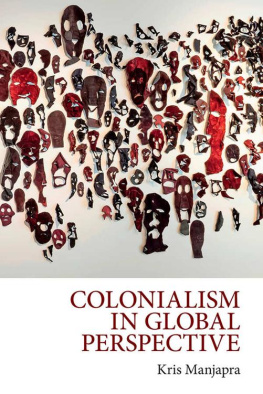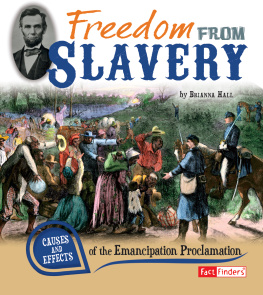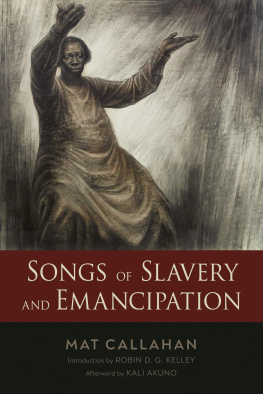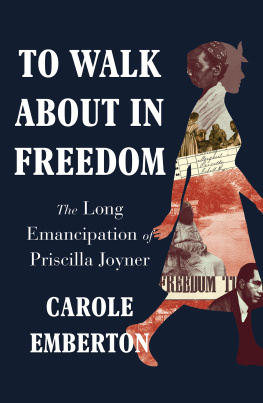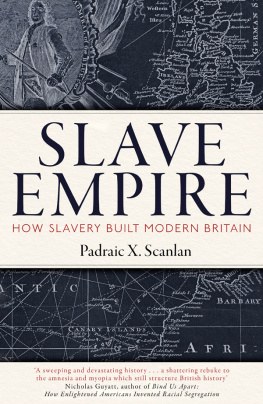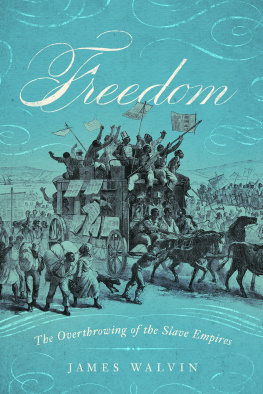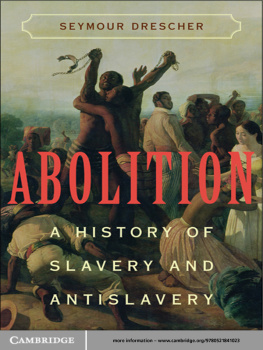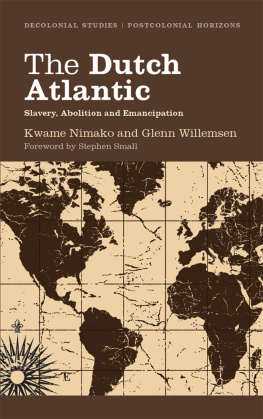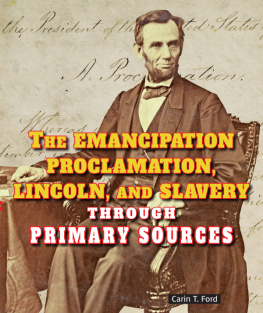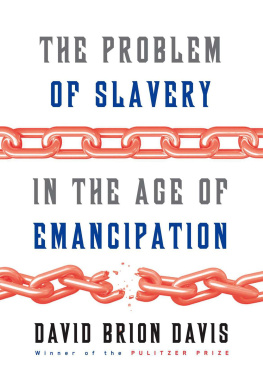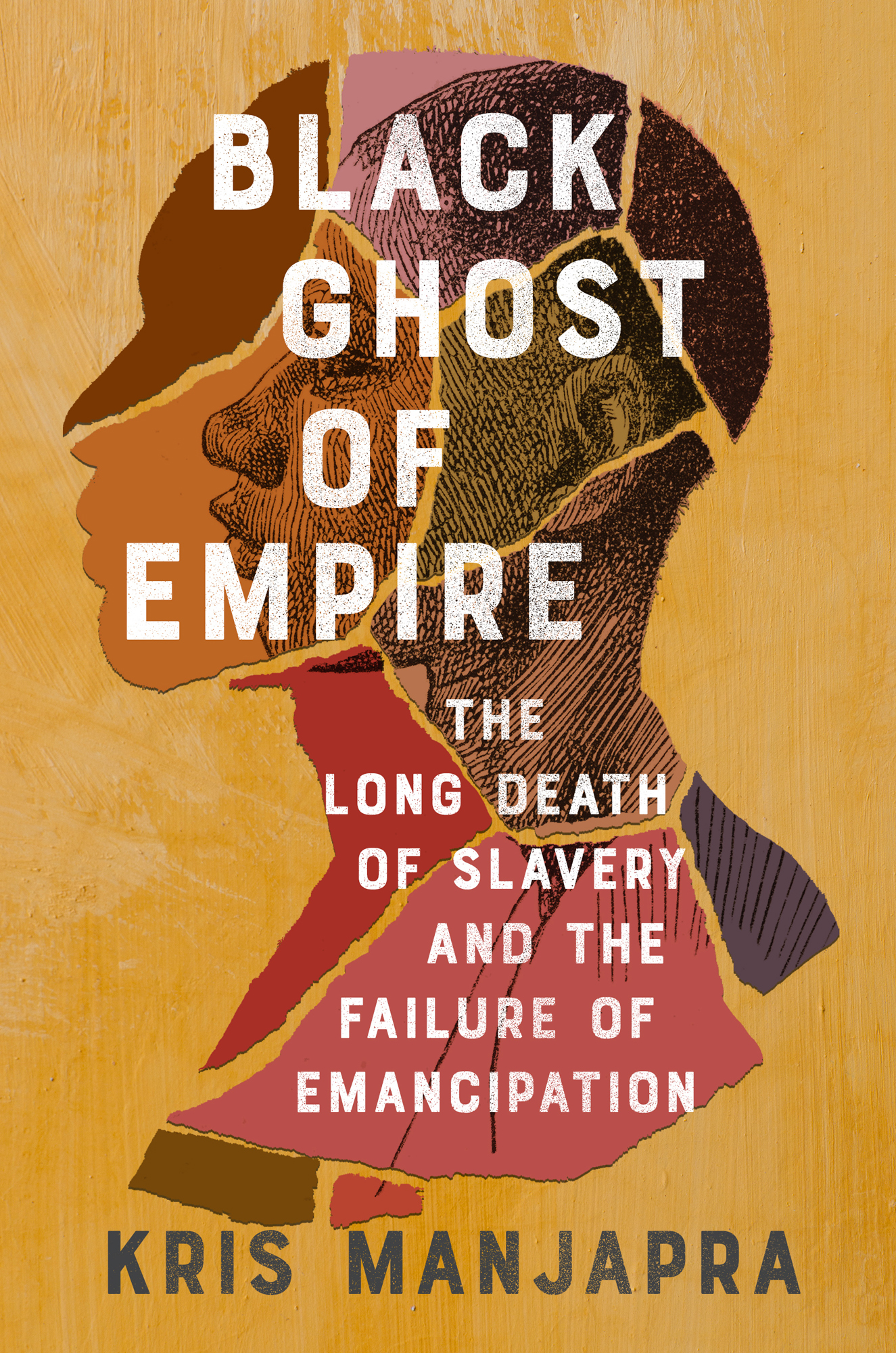Contents
Guide
Black Ghost of Empire
The Long Death of Slavery and the Failure of Emancipation
Kris Manjapra
To Jeanile and Laurenna,
my mothers
and that was Emancipation
jubilation, O jubilation
vanishing swiftly
as the seas lace dries in the sun,
but that was not History
Derek Walcott, The Sea Is History (1979)
NOTE ON TERMINOLOGY
I use the terms black people and African people interchangeably. When I refer to African people, I mean people of the global African diaspora, whether located in the continent of Africa or in countries around the world. Black people, in my usage, also refers to the global presence of Africans. The machinations of slavery and colonialism have sought to divide and separate African communities over more than five hundred years. The interchangeable use of black and African in this book points to the shared experience that persists through the divisions.
INTRODUCTION EMANCIPATION AND THE VOID
T he Bahamas, place of my birth, is a Caribbean nation-state of some seven hundred islands and cays extending like vertebrae along the southern rim of the Sargasso Sea. Andros Island, the largest of the chain, is surrounded by tidal flats, coral reefs, karst formations, and lime muds along its rubble coasts. Atlantic waters undulate and crash at its shores, but they also penetrate into its pine-covered and craggy interior, burrowing deep cylindrical holes into the carbonate bedrock of the landscape. The island itself is pockmarked and eaten through by the alien sea. The last time I visited Andros, I was seeking to fill a voida holein my family history. The island taught me something important about the presence inside voids, and my relationship to them.
The void is the most succinct encapsulation of Atlantic slavery and its ongoing afterlife. Five hundred years of racial slavery designated African-descended peoples as devoid of human value. It stripped them of their personal and family names, obliterated their kinship ties, and assigned them a market price as atomized pieces of human property. Slavery swallowed millions of Africans into the bellies of ships, enumerated and inventoried them, transported them across the seas, and spat them out into slave markets across the Americas and Europe. It was an incalculably traumatic system of genocide, tearing families apart and alienating people from their own sense of themselves; forcing them to reconstruct life, joy, and family again and again. Slavery constituted a centuries-long war against African peoples. And the emancipationsthe acts meant to end slaveryonly extended the war forward in time.
Voids are complex because they are nothing at all, and yet everything at once. Inside the void, black people reconstituted life, kin, and community amid the terrorization and destruction of slavery and the plantation regime. They created new art and meaning in and beyond the hole of the ship and the void of the slave price. The enslaved rebelled and fled, tended to their ancestors, and fed and nourished their children. They saved money, organized political movements and strikes, and constructed communities of mutual care and succor. They loved. They celebrated and rejoiced and made space for their own liberation from within slaverys trap.
I began my trip on the northern Andros coast of the Bahamas in a town where my ancestors participated in the establishment of a free black village in the aftermath of Britains abolition of maritime trafficking in enslaved people in 1807. Free villages sprang up across many of the British Caribbean islands, especially after Britains abolition of plantation slavery in 1838, as black people remade their communities in the wake of slavery. At the village of Mastik Point, Alexander Bain, a mixed-race son of a large-scale white slave-owner, established one of many Bain towns, in which he apportioned plots of land to the freed people, some of whom were rescued directly from slave ships. The freed people used the land to build small homes, keep subsistence plots, and anchor their fishing boats. In the postslavery period, the people of Mastik Point were buffeted by the currents of oppression and reenslavement that continued after, and because of, emancipation. Illegal trafficking in abducted people from Africa to the Bahamas continued all the way up until the 1880s, more than seventy years after the British abolition of the slave trade. Throughout the late nineteenth century, the Bahamian coast served as an important port for global human trafficking. Portuguese and Spanish ships, alongside ships from Baltimore and Boston, moored themselves along these shoals as a first point of entry into the slave markets of the Caribbean. From the Bahamian carapace, slaving vessels sailed farther on to the Mississippi Cotton Kingdom, to the sugar island of Cuba, and to the coffee plantations of Brazil.
The rumor in my family is that my great-great-great-grandmother, Laurenna Woodside, survived the horror of a slave ship chartered from Luanda, Angola, sometime in the 1880s. The story is full of voids, as I dont know where in western or central Africa she was kidnapped from, or how she ended up in Mastik Point to make a life with other people descended from African captives. She married a black seaman named Ezekiel. Laurenna died at age nineteen after giving birth to her second child. I came to Andros because these meager details beckoned me. I consulted birth and marriage registries. I met with distant family members and traveled between villages along the northern coast. And what I encountered was not historical detail, but historical void. None of the elder villagers I met remembered Laurenna because she had passed away a generation before the oldest among them was born. My familys history of slavery traces, in its gaps, the obliteration of kinship ties committed by the weapon of slave ships.
Before I departed Andros, a friend took me to one of the islands blue holes. These are deep columns of water that descend into the limestone bedrock. Some even connect through subterranean caves directly out to the ocean. Standing at the edge of this blue hole, I noticed the pools darkness and stillness making the surface into a perfect mirror for the surrounding pine trees and the intense blue sky. It looked like a portal, or a channel, into the unknown and the submarine. On the edge of that geological enigma, I reflected on how my encounter with the void of my familys history had some relationship with the experience of peering into this blue hole. When it comes to histories that arise from the trauma of Atlantic slavery, voids and negations indicate both absence and some other, obscure submerged presence that calls to be known. As I walked around the pool, I felt compelled to tend to something, cross over into something, attune myself to what could not be seen but was present nonetheless. It struck me that this was, in a way, like our relationship to history itselfhistory filled with assorted unknowns and unclaimed experiences that call out from the voids.
THE GHOST LINE
W. E .B. Du Bois, the Pan-Africanist philosopher, proposed in 1900 that the problem of the twentieth century is the problem of the color-line.
To ghost someone is to ignore them, to see through them, and to look past them. To ghostline a peoples history is to systematically ignore the meaning of their collective experience, generation after generation, century after century.


